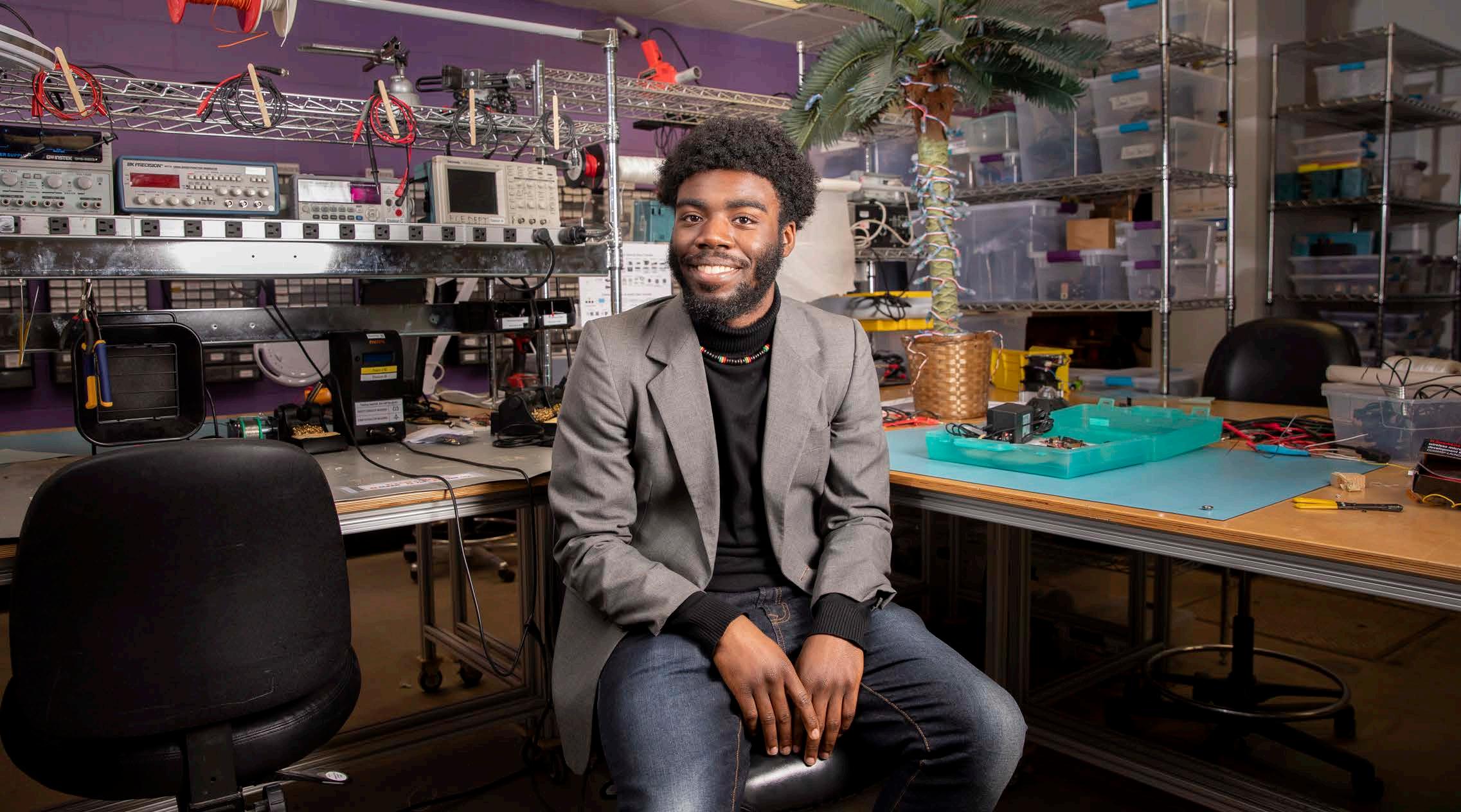
3 minute read
Innovation & Entrepreneurship Working Group
STRATEGIC COORDINATION ACROSS CAMPUS
The Innovation & Entrepreneurship Working Group consists of members tasked by the chancellor with establishing the University of Massachusetts Amherst as a higher education destination of choice for faculty, students, and greater community members who are looking to engage in innovation and entrepreneurship. The team works in small groups to strategize the best ways to provide undergraduate and graduate students—including those from underrepresented backgrounds—with opportunities to develop interdisciplinary innovation and entrepreneurial skills and to foster more productive collaborations with industry.
The working group’s scope includes:
• Document the current I&E activities on campus. • Develop proposals to increase support for and engagement of undergraduates across the campus in curricular and co-curricular I&E activities. • Engage more graduate students in I&E activities that link to the research enterprise, including
I-Corps. • Provide support and coordination for faculty to advance activities in the I&E area. • Increase the participation of alumni and friends in providing expertise to increase the success of new ventures, e.g., mentors, entrepreneurs-in-residence; incorporate and utilize our Newton campus. • Vigorously and visibly engage with off-campus groups of investors, e.g., angel and seed funds and support organizations such as Mass Challenge,
Valley Venture Mentors, and Greentown Labs. • Define goals and success metrics for I&E activities for the next three to five years.
Mike Malone, vice chancellor for research and engagement, serves as sponsor for the group, which is led by chancellor-appointed co-chairs Gregory Thomas, executive director of the Berthiaume Center for Entrepreneurship and a lecturer at the Isenberg School of Management, and Kathryn Ellis, director of the UMass Innovation Institute.
The other members include:
Brant Cheikes, executive director of the Center for Data Science, Manning College of Information & Computer Sciences
James Flynn, assistant dean of Research Business Development, Manning College of Information & Computer Sciences
Karen Giuliano, associate professor, Applied Life Sciences and Elaine Marieb College of Nursing
Burnley Jaklevic, director and senior licensing officer for the Technology Transfer Office
Charles Johnson, associate director of the Berthiaume Center for Entrepreneurship, clinical associate professor of management, and managing director of the Maroon Venture Partners Fund
Allison Jameson Koss, communications manager for Research and Engagement
Sundar Krishnamurty, Isenberg Distinguished Professor in engineering and director of the Center for e-Design in the College of Engineering
Peter Reinhart, founding director of the Institute for Applied Life Sciences
Mark Tuominen, associate dean for Research & Innovation and professor of physics in the College of Natural Sciences
Karen Utgoff, director of IALS Venture Development Programs and site director for I-Corps @ UMass Amherst
Xavier Farrell ‘21
THE FUTURE OF UMASS AMHERST’S INNOVATION & ENTREPRENEURSHIP CURRICULUM
One project under the purview of the chancellor’s Innovation & Entrepreneurship Working Group is considering academic programs that will enhance the availability of entrepreneurship resources across the UMass Amherst student body, especially for undergraduate students. To that end, the team envisions a new undergraduate curriculum, called INNOVATE, that will create a support ecosystem for small cohorts of talented students from underrepresented backgrounds to train them as successful scientists and engineers, inspired by the emerging paradigms of an inclusive innovation and entrepreneurial mindset.
INNOVATE’s integrated curriculum and co-curricular activities would provide students with a structured program to support the development of their scientific discovery process and entrepreneurial skill set, along with meaningful scholarship support. Students would receive numerous opportunities to work in diverse, interdisciplinary teams while applying their knowledge to invention, innovation, and entrepreneurship with a commitment to diversity, equity, and inclusion.
INNOVATE would be a holistic curriculum with a suite of integrated cohortbuilding, mentoring, and immersive co-curricular programmatic activities that address the importance of belonging, self-efficacy, and ability, which are integral in helping BIPOC and other STEM students navigate their unique challenges in their academic and professional lives.
The program would help increase the participation of underrepresented students of color, first-generation students, and women students pursuing degrees in STEM at UMass Amherst, and would empower the next generation of students with an entrepreneurial mindset, as they connect theory to practice and engage in equity ethics as a means for improving motivation and persistence.










